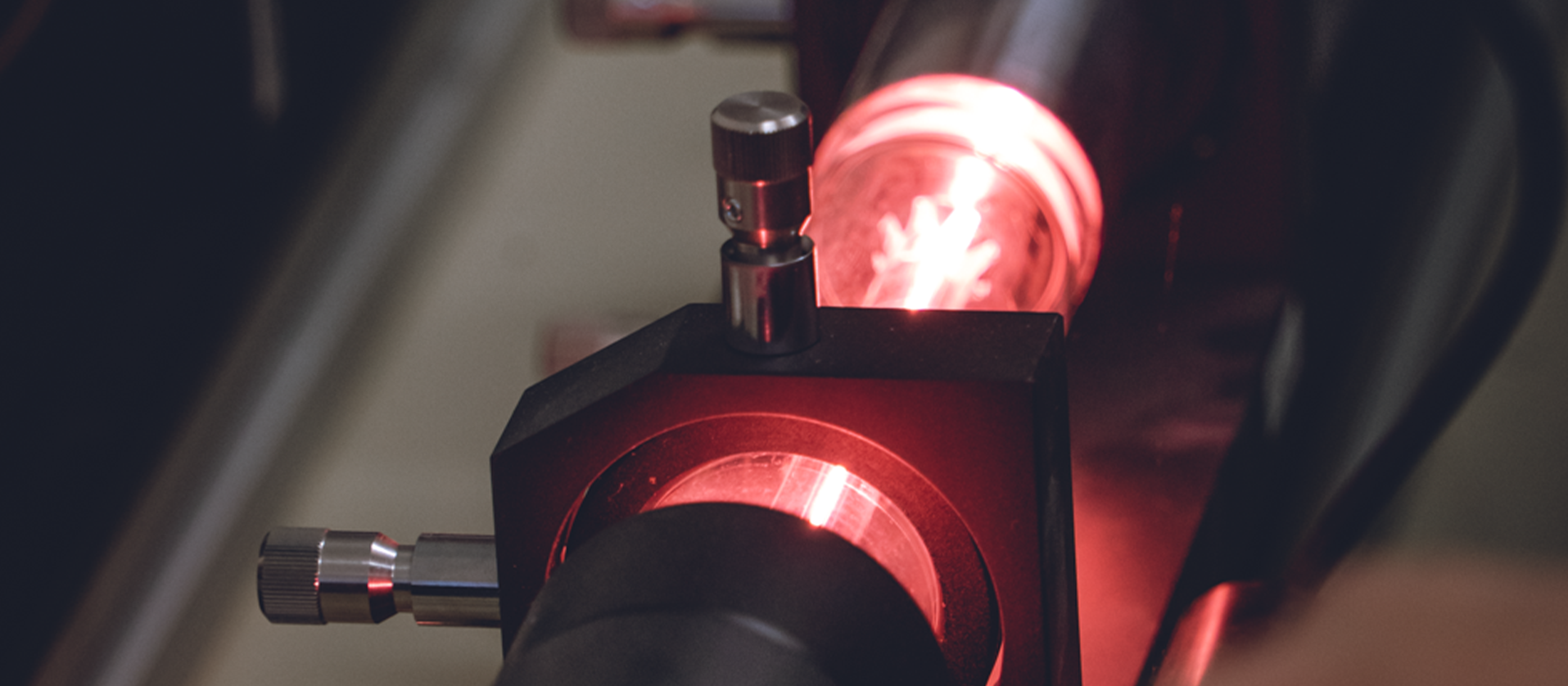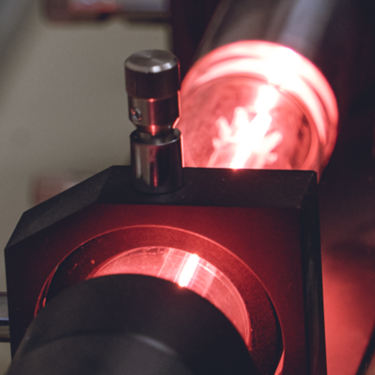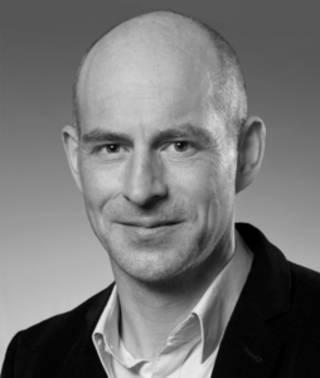Study at a glance
Are you interested in light-based applications and sensor solutions? Then the Master of Science Engineering with a profile in Photonics and Laser Engineering at the UAS Graubünden is the right program for you.
A degree opens the door to a top professional position or a job in research and development. The Master of Science in Engineering (MSE) is an educational program developed jointly by the Swiss universities of applied sciences. It is aimed at highly motivated Bachelor graduates with a very good degree. The language of instruction is exclusively English. Contact teaching accounts for around one third (30 ECTS) of the entire course and is mainly held centrally in Zurich. The remaining two thirds (60 ECTS) are dedicated to practical project work and the Master's thesis and take place locally at the enrolled university of applied sciences.
Degree
Master of Science FHGR in Engineering with specialization in Photonics and Laser EngineeringStudy model
Full-time or part-time studyDuration of study programme
Full-time: 3-8 semesters Part-time: 6-8 semesters (see duration of studies)Place of study
Chur: Specialist specialization (60 ECTS) Zurich: Theory and context modules (30 ECTS)Begin of study programme
Fall or spring semesterTeaching language
English / GermanDirector of Studies
Bitzer Andreas More about Bitzer AndreasApplication deadline
Fall semester: May 31 / Spring semester: November 30 Apply now!
Future prospects
Photonics and laser engineering are key technologies that link the most diverse fields of application in an interdisciplinary manner. These include image processing, optical metrology, medical technology and life sciences. The basis of all these technologies is the generation and detection of light - usually laser light - for metrological applications, material processing or communication.
Graduates of the "Photonics and Laser Engineering" profile know and understand photonic key components, light-based processes and measurement methods. They can simulate these using numerical models and design and experimentally verify them for new applications. This includes machine image processing - machine vision - the development of electronics and printed circuit boards as well as the mechanical design of systems.
Graduates with a Master's degree in Photonics and Laser Engineering are interdisciplinary all-round specialists. They are predestined for leading positions with management responsibility in the fields of research and development, intelligent manufacturing, industrial process and quality control as well as automation and digital factories (Industry 4.0).
Course content
With the MSE degree program in Photonics and Laser Engineering, you will acquire a fundamental understanding of the physical principles and processes of photonics. You will be an expert in the use of light and lasers in a wide range of applications, from lighting technology to production technology, from measurement technology to medical technology, and will be able to design and implement photonic sensor systems for automation and production. They have the ability to numerically simulate multidisciplinary systems with photonic elements and to combine light-based technologies with mechanical, micromechanical and electro-optical systems.
Photonics and laser engineers are able to solve complex problems using suitable methods. They can quickly gain an overview of the current state of the art, assess existing scientific approaches and apply them accordingly. They can also assess the feasibility and market benefits of new photonics systems. They are predestined to lead multidisciplinary project teams and can communicate, collaborate and interact with other fields such as mechanical engineering, electrical engineering, medical and biotechnology, computer science or data science in an interdisciplinary manner.
Study focus:
● 3D machine vision and AI
● Lidar systems
● NIR measurement technology
● Microscopy, spectroscopy and medical diagnostics
● Laser material processing
● Fiber optic technology and data communication
● Numerical simulation of optical systems
Study plan
The degree program consists of theory and context modules as well as the specialization with the Master's thesis. The theory and context modules require 30 ECTS credits (around one third), the specialization 60 ECTS credits (around two thirds).
Recommended theory modules
The theory modules comprise 30 of 90 ECTS credits. The modules are taught by professors from all over Switzerland at different locations. You will complete these modules together with other MSE students.
Specialist specialization
The specialization comprises 60 of 90 ECTS. It consists of two practice-oriented projects (2 x 15 ECTS) and a Master's thesis (30 ECTS). The work can be carried out as part of research projects at the UAS Grisons or with industry partners. The exact topics are determined individually in consultation with your academic advisor.
Admission requirements
For admission, you need a Bachelor's degree or a comparable degree in engineering. The achievements of the entire Bachelor's degree must correspond to an ECTS grade A or B. Admission "sur dossier" is possible for Grade C. Grade D is not accepted.
If you have any questions about the admission requirements, please contact us. We will be happy to help you.
The overall grades of the Bachelor's degrees at the FHGR correspond to the following ECTS grades:
6.0 = A
5.5 = B
5.0 = C
4.5 = D
A -> admitted
B -> approved
C -> sur dossier
D -> not admitted
Recommended Bachelor's degrees:
- BSc in Optoelectronics (Photonics)
- BSc in Systems Engineering
- BSc in Microtechnology
- BSc in Electrical Engineering
- BSc in Mechanical Engineering
- BSc in Medical Engineering
- BSc in Data Science
- BSc in Materials and Process Engineering
- BSc in Engineering
Further degrees "sur Dossier" possible.
Exceptional cases
If the general as well as the subject-specific average corresponds to an ECTS grade C, admission "sur dossier" is possible in justified cases. In the event that performance cannot be assessed on the basis of certificates, an admission interview will be conducted with the applicant. Applicants from abroad must provide proof of German language skills at a conversational level.
Place of study
The contact lessons take place in Zurich, the practical training and research work at the Chur site of the UAS Graubünden or at the industrial partner.
Duration of study
The course can be completed both full-time and part-time. The recommended duration of study is 3 semesters for full-time study and 5 semesters for part-time study (see chart).
The maximum duration of study may not exceed 8 semesters for both full-time and part-time studies. In exceptional cases, an additional semester may be approved. Study interruptions do not count towards the duration of studies. These may not exceed a total of two semesters.
The reserve semesters can be used if modules are not passed.
Language of instruction
Theory (TSM, FTP, CM): English
Project work and Master's thesis: English/German
ECTS points
European Credit Transfer and Accumulation System (ECTS)
The European Credit Transfer and Accumulation System (ECTS) is an instrument for creating a European educational area in which students and teachers can move freely. ECTS points are awarded for the workload required to achieve the expected learning outcomes of a course. ECTS points form the basis for the recognition of academic achievements and diplomas between universities.
ECTS points
One ECTS point corresponds to an average student workload of 30 hours. In addition to attending courses, the student workload also includes time spent preparing for and following up on courses, examinations and self-study. In a full-time course, 60 ECTS credits are earned per year, which corresponds to a workload of 1800 hours.
At the UAS Grisons, the Bachelor's degree program comprises 180 ECTS credits, a consecutive Master's degree program 90 ECTS credits.
Study and examination regulations
The study and examination regulations regulate the study program, examination and doctoral modalities.
Registration and advice
Application form
If you would like to register for the program, please send the completed registration form and the required documents to the administration of the UAS Grisons.
Start of studies
Fall semester: September
Spring semester: February
Application deadline
Fall semester: May 31
Spring semester: November 30
Places are allocated according to the date of receipt of the application documents. Applications will also be considered after the application deadline if places are available.
Consulting
Do you have content-related or administrative questions? Would you like study advice? We will be happy to help you.
University of Applied Sciences of the Grisons
Pulvermühlestrasse 57
7000 Chur
Switzerland
Phone +41 81 286 24 86
E-mail mse@clutterfhgr.ch



